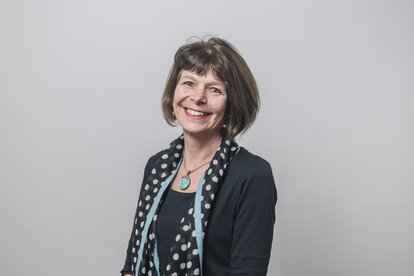It is rare that we Helvetas staff members “indulge” in writing papers for journals. Some of us enjoy the challenge of so doing, but in general it is one of those activities that is additional to our regular work, and for which it is difficult to find time. So when a colleague, Sarah Byrne, spotted a call for abstracts on monitoring and evaluating (henceforward M&E) women’s empowerment in the journal Gender and Development, I was not overly excited. All the more so as the deadline was within a couple of days. We rapidly put together some ideas and sent it off, knowing that we would have to do some major consultations with colleagues in the field if it was accepted. Somewhat to our surprise, it was. To cut a long story short, thanks to contributions from staff members in Bangladesh, Nepal and Kosovo, the paper was written and published. And now – probably in large part due to it being singled out by Duncan Green in his blog – it turns out to have been amongst the top 3 most downloaded articles in development studies in all the Routledge journals in 2014!
The main point that we made in our paper is something that we knew intuitively, but found to be strikingly similar across the three very different country contexts. First a little background. Like all professional development agencies, we strive through our M&E systems to collect accurate, quantitative data on project performance – both for purposes of learning and for accountability. I’d like to say accountability to the project participants, but the emphasis tends to be on accountability to those who fund our projects. And donors are demanding more and more hard facts, evidence of “value for money”. So we monitor relatively easily obtained “output” related figures such as trainings completed, numbers of women attending meetings, and numbers of women in committees, as well as somewhat more difficult “outcome” related figures such as increases in income generated, or numbers of “women friendly” decisions taken in local governance bodies. Yet ask a woman in Bangladesh, Nepal or Kosovo what difference a (successful) project has made to her life, and what she is most likely to mention is how she feels: the increased respect that she has in the community; the way that her opinion is now listened to in the household; her overall self-confidence. The following quote is typical. It comes from Bimala Biswhakarma, a 26 year old Dalit (“low” caste) woman in Nepal, who received a three month training in weaving:
"After acquiring the skills from the training I have totally transformed my previous identity. In the past people used to know me through my husband’s name and I could hardly talk with outsiders. Now equipped with my skills I can openly talk to people. And with my income I am sustaining my family."
What really matters to Bimala Biswhakarma is her increased sense of self-worth – but clearly this is not as easy to measure as her successful completion of a training. It is indeed very rare that we systematically collect information based on self-assessment. Neither do we capture the link between increased self-confidence and other outcomes. This is very nicely explained by Rekaha Rani, a woman who participated in one of our projects in Bangladesh:
"Before taking part in the project initiated interventions, I was not allowed to visit places outside my house. This all changed after I joined the duck rearing producers’ group. My income and communication skills increased and improved. Due to the income and awareness, my husband allows me to attend different meetings of the producers’ group – village, Union, Upazila and district levels. Due to my involvement in the producers’ group, other producers encouraged me to run for a local government election as member in Union Parisad [UP- the lowest tier of local government in Bangladesh]. I was motivated to try and finally was successful in winning the election. From a simple housewife, I am now an elected member of the UP."
Of course Rekaha Rani’s story in becoming an elected local councillor is exceptional, but the point is that the linkages that she so clearly makes – from gaining confidence to achieving really significant changes in her life – are not something that our M&E systems can currently track.
Keeping things simple but capturing what is important is a constant M&E challenge. Still, having pointed out the importance of tracking self-perceptions, we now need to come up with some more nuanced and participatory project monitoring systems. Work in progress.


